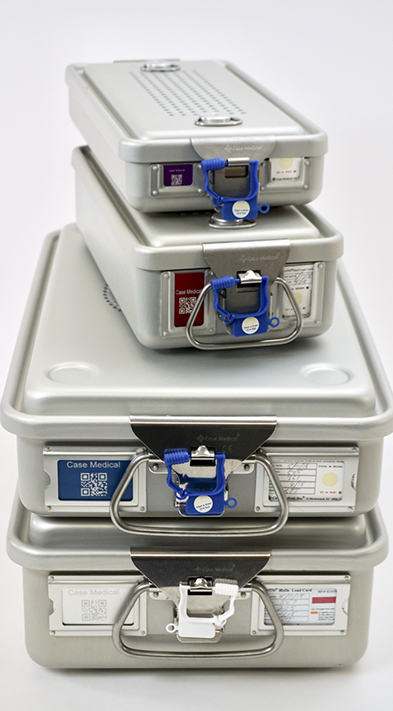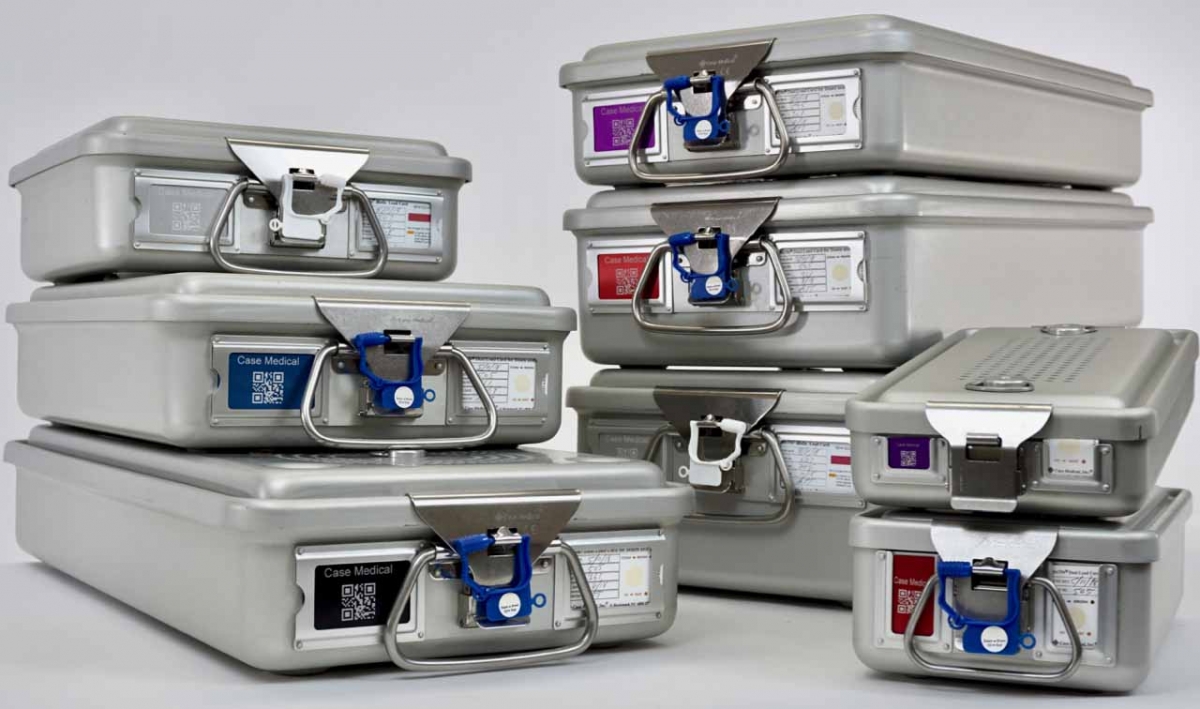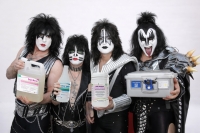
Blame, misinformation, and gaslighting
This is too frequently a tactic used in politics, business, commerce, and in the health care industry to create doubt about a product or service, even a person’s best intentions. Last week, we discussed how science experiments utilize both positive and negative controls. We pointed out how process indicators used to monitor both cleaning and sterilization efficacy also serve to alert us to failures that then need to be investigated. When a product has been tested and validated under the most challenging conditions and proven in the field with continued success over decades, it can be viewed as a positive control. If failures should occur, then a thorough investigation must occur to determine the cause. Where should one start?
A validated and cleared universal container
A proven product, like Case Medical’s SteriTite container system with years of consistent reliable service, durability and FDA 510k for compatibility with devices and sterilizers might serve as a positive control when something goes wrong or it can even be viewed as an indicator or monitor that equipment and process need to be investigated to determine the cause of a failure or cancelled sterilization cycle. Case Medical received our first FDA 510k in 1997 for pre-vacuum and gravity displacement steam sterilization with lumened devices, trays with numerous inserts, stacked containers in the autoclave and stacked baskets and trays within the container. At the time, no other container system met so many challenging validations under half cycle, worse case scenarios. Then in year 2000, the SteriTite container which is anodized and passivated for corrosion resistence and then challenged under worst case scenarios was the first container system to demonstrate effectiveness in STERRAD Sterilization and remains the only container system that is fully anodized and passivated for low temperature sterilization and steam. At the time the compatibility was for the STERRAD 100, the very first model, and the effectiveness with subsequent models continues until present. Every model, every cycle, meeting sterilizer and lumen claims, even in the STERRAD 100 NX Express Cycle.


What’s happening now? It’s not weight!!!
Every few weeks or so we hear that a STERRAD unit has a failed or an aborted cycle occured when our container is used. Usually, it’s a STERRAD unit without ALL CLEAR Technology or a sterilizer needing repair or maintenance. It can also be detergent residue, a finishing or sheeting agent used in the cart washer, or even peroxide residue, a white powdery substance left behind after vaporized hydrogen peroxide sterilization. BUT NOT because of container weight. Our SteriTite containers add weight to the load as all containers do. At Case Medical, we believe in science, FDA cleared and EPA certified products and truthful information. So when someone points fingers at the container or the weight associated with it, what are they saying? “It’s not us or our device. It must be yours.”
Truthful information and validation
After 25 years of testing following the overkill principle with container weights up to and over 25 pounds with successful validations and FDA 510k in STERRAD, V-Pro and steam sterilizers one wonders why the issue of weight has become an issue at all? Validation testing has been successful with our container and weight never was or is a contributing factor. Could it be something else? Read our IFU for guidance. Understand that after 24 years of continuous use in STERRAD Sterilizers and years of successful outcomes with V-Pro, when it comes to an aborted or failed cycle, check that the equipment is in working order, that pH neutral or near neutral detergents are used, that the container is at least at room temperature, and that devices and containers are cleaned and thoroughly rinsed under water. Remember that the usual suspects for sterilizer failure are a cold sterilizer or a cold container that is not warmed previously, containers processed in a cart washer with softened water (with sodium salt mushing residue), and certainly when an organic chemical is left on the surface, or with a drying, sheeting or finishing agent added as a last step in the cart washer before low temperature sterilization. Read our SteriTite IFU for guidance and contact us. We are hear to help.

Case Medical is a U.S. EPA Safer Choice Partner of the Year and here to help you solve problems with sustainable and validated products and services.
We are at AAOS! Visit us at booth 4213.
We are at AAOS! Visit us at booth 4213.
Visit us anytime at www.casemed.com to learn more about our products and services. We are here to help. Case Medical is a U.S. EPA SAFER CHOICE Partner or the Year for Manufacturer Formulator and recognized in NJ as Innovative Manufacturer of the Year.
Kindest Regards,





